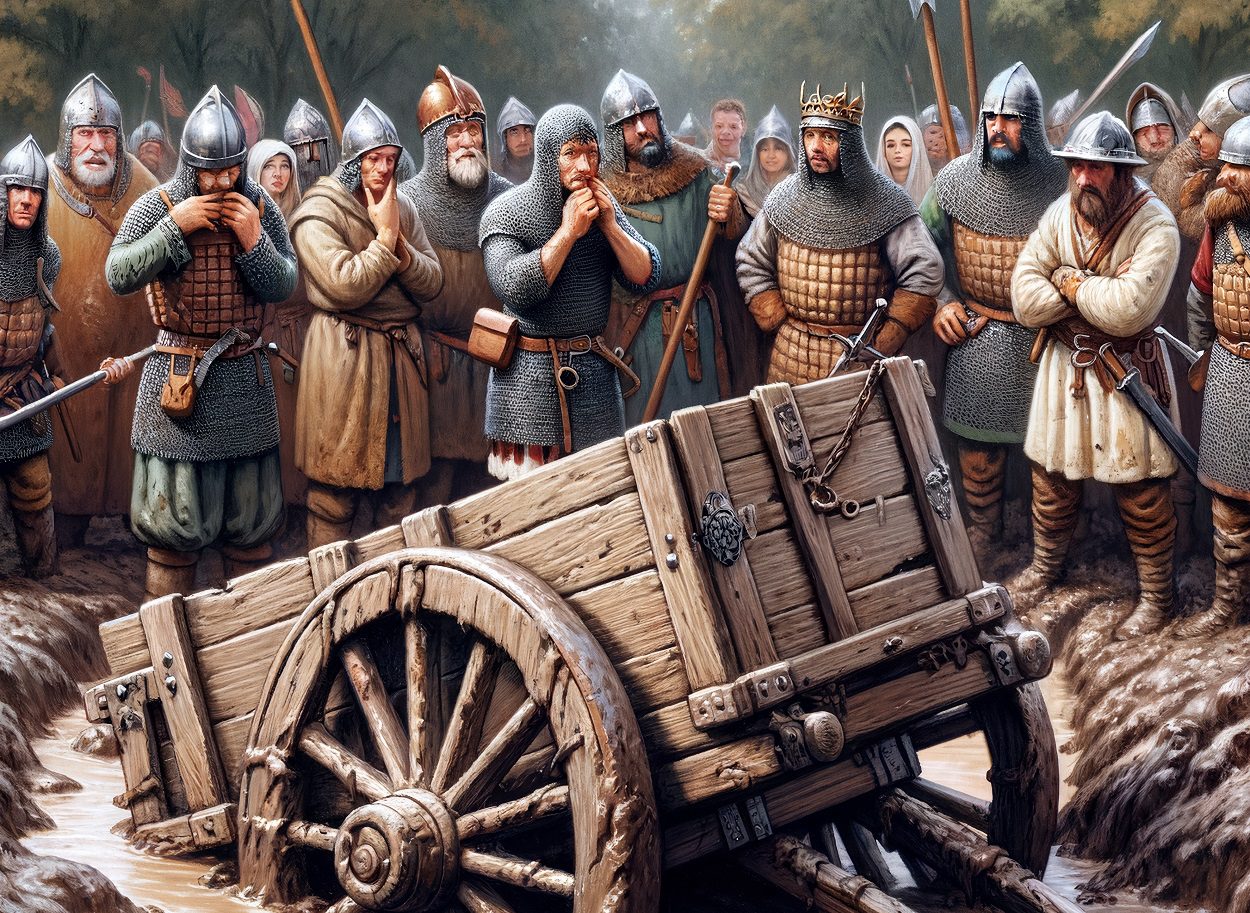Archaeologists from the West Norfolk and King’s Lynn Archaeological Society (WNKLAS) are conducting a search for King John’s lost treasure.
John was born in 1166 at Beaumont Palace in Oxford, England, and was the youngest son of Henry II and Eleanor of Aquitaine.
He ascended to the throne in 1199, however, his turbulent reign has led to John being described as “one of the worst kings ever to rule England”.
The ensuing wars with Philip II of France led to a growing tension between John and his barons, resulting in a resistance movement emerging in the north and east of England.
The barons renounced their feudal ties and marched on London, Lincoln, and Exeter, forcing John to negotiate a peace settlement at Runnymed (which would later become known as Magna Carta).
John failed to honour the terms of Magna Carta and begun raising an army of mercenaries. The barons responded by offering the crown to Prince Louis of France and eventually forced John into retreat.
While John was crossing the tidal estuaries that empty into the Wash on the east coast, it is said that his baggage train containing the English Crown Jewels was swallowed up by quicksand and whirlpools.
A new study by archaeologists from the West Norfolk and King’s Lynn Archaeological Society (WNKLAS) are now hoping to uncover John’s lost treasures in Norfolk.
The researchers will be excavating an area of land next to Walpole Marsh in the Fenlands, located 8 km’s from the present-day coastline. During the Medieval period, the region was a large natural marshland often prone to flooding.
According to the researchers, the excavation site was chosen based on an aerial survey using LiDAR, a method of remote sensing using light in the form of a pulsed laser to measure ranges (variable distances) to the Earth.
Clive Bond, chairman of the West Norfolk and King’s Lynn Archaeological Society (WNKLAS), said: “It’s an opportunity to take a glimpse into the landscape. When you’re looking at something this big it’s quite exciting.”
“There could be something there, absolutely, but actually getting to where it’s been deposited in a changing, dynamic river system – you’re looking a million to one”, added Mr Bond.
Enso Energy is planning to develop the site in late 2024 into a new solar farm to power 10,150 homes. However, according to a report by Enso Energy, “there are no statutory landscape, heritage or ecological designations on site”.
In 1216, John contracted dysentery and died in October at Newark Castle in Nottinghamshire. He was buried in Worcester Cathedral in front of the altar of St Wulfstan.
Header Image Credit : Shutterstock
Sources : West Norfolk and King’s Lynn Archaeological Society (WNKLAS)





